IROS 2020 Workshop on Perception, Planning and Mobility in Forestry Robotics (WPPMFR 2020)
Virtual Workshop, October 29th
Forestry is often used as a political selling point — in a single fell swoop, economical, societal and environmental concerns are bundled together in an attractive message where it is referred to as an industry carrying with it the promise of the future. However, in the past few years it has been clearly demonstrated that, for all its potential, forestry is a risky investment with very slow returns, and as such a very challenging agenda to take on in practice, if resorting only to traditional solutions. The logical conclusion would be that a paradigm shift towards a new technological approach is needed, in which forestry robotics would naturally fit at the forefront. However, are we ready for that shift?
In this talk, I will be opening the discussion on the motivations and opportunities but also risks and challenges of forestry robotics, leading to the question we hope to be contributing for an answer in this workshop.
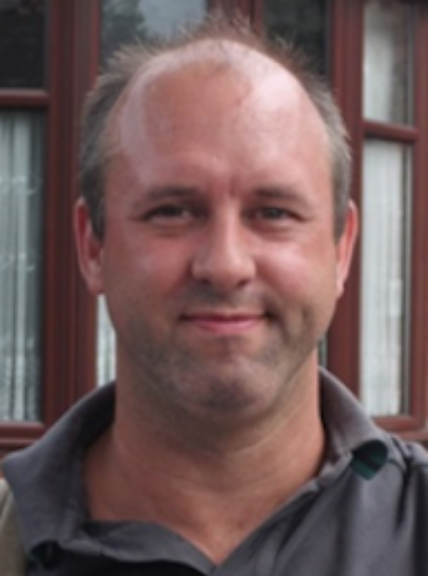
João Filipe Ferreira is a Senior Lecturer in Computing at Nottingham Trent University (NTU) since 2018. He conducts his research as a member of the Computational Neuroscience and Cognitive Robotics Group (CNCR) at NTU, and also as an integrated member of the Institute of Systems and Robotics (ISR), a research institute of the University of Coimbra. He is a member of the IEEE and the IEEE Robotics and Automation Society (RAS) since 2012 (Officer in the Portuguese Chapter from 2014 until 2018, member of the Technical Committee on Cognitive Robotics, T-CORO, since 2015, and member of the Technical Committee on Agricultural Robotics, TC AgRA, since 2019), the IEEE Life Sciences Community since 2013, the IEEE Systems, Man, and Cybernetics Society since 2015 and the IEEE Computational Intelligence Society since 2015. He is also a member of the British Computer Society since 2019.
His main research interests concern the broad scientific themes of Artificial Perception and Cognition. Within these themes, the following topics have received his main focus: probabilistic modelling of perception, perception and sensing for field robotics in precision forestry and agriculture, and bio-inspired perception and cognition for social robotics, co-robotics and human-robot interaction. However, his research interests are not limited to these subjects: over the years, he has also produced contributions in medical image processing and 3D scanning. He is the main author of the textbook "Probabilistic Approaches for Robotic Perception" (Springer STAR series). He is currently the Lead Co-Investigator for the FEDER/PORTUGAL 2020 funded projects SEMFIRE (Safety, Exploration and Maintenance of Forests with the Integration of Ecological Robotics – CENTRO-01-0247-FEDER-032691) and CORE (Centre of Operations for Rethinking Engineering – CENTRO-01-0247-FEDER-037082), both running from 2018 to 2021.
Field robots for challenging domains, such as forestry, face several technical challenges inherent to their ability, or lack of it, in operating under the unstructured, harsh and dynamic nature of such outdoor environments. The cost of developing in-house field heavy-duty robots, the lack of multidisciplinary teams involving end-users and stakeholders, and the broadly adopted passive nature of most envisaged solutions (e.g., monitoring over manipulation), makes the current efforts insufficient to enable future markets development. This keynote talk presents the first steps towards a theoretical framework which guides the development of affordable field heavy-duty robots. The talk will start by describing the necessary procedures to successfully convert existing machines into robots. This is followed by specifying and suggesting state-of-the-art additional hardware. At last, the presentation will highlight the need to adopt robotic standards, suggesting the use of the Robot Operating System (ROS) as a robotics middleware. Initial results obtained by adopting the proposed theoretical framework into a forestry heavy-duty robot provide evidence that these guidelines can offer substantial benefits over in-house built robotic solutions.
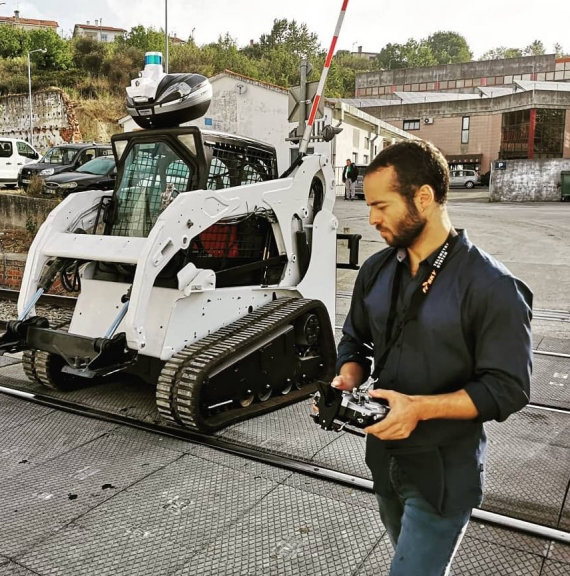
Micael S. Couceiro obtained the B.Sc., Teaching Licensure, and M.Sc. degrees in Electrical Engineering at the Engineering Institute of Coimbra, the Ph.D. degree in Electrical and Computer Engineering at the University of Coimbra, and the Postdoc studies on Human Kinetics at the Faculty of Human Kinetics of University of Lisbon. Over the past 14 years, he has been conducting scientific research on several areas, including robotics, computer vision, sports engineering, and others. This resulted in more than 50 articles in international impact factor journals, more than 70 articles at international conferences, 3 books, 15 M.Sc. students' supervision, 2 ongoing Ph.D. student supervision, and the coordination of 6 R&D projects. He is currently an Associate Researcher at the Institute of Systems and Robotics and an Invited Professor at the Polytechnic Institute of Tomar. He is also co-founder and CEO of Ingeniarius; a company devoted to the development of robotic solutions and wearable technologies.
Off-the-shelf SLAM algorithms tend to fail in tree canopies due to the highly occluded nature of the environment and the corresponding lack or reliability for standard visual features. Some of these challenges can be overcome by using semantically segmented parts of the plants as features for data association and 3D modeling. This talk will present a pipeline that combined deep-neural net semantic labeling of buds, canes, and fruit with traditional modeling methods to create a more robust pipeline for 3D SLAM in grapevine canopies. We will show experimental results, and discuss how this approach may be generalized to other agricultural crops and forestry applications.
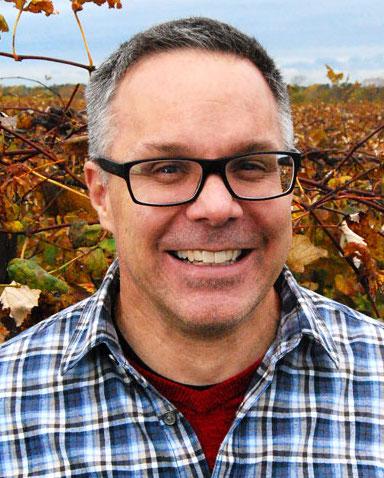
George Kantor is a Senior Systems Scientist at Carnegie Mellon University’s Robotics Institute. He has over 20 years of experience research in developing and deploying robotic technologies for real-world applications such as agriculture, mining, and scientific exploration. In the agriculture domain, his past and ongoing work includes the development distributed sensor-actuator networks for intelligent irrigation control, the development vehicles for autonomous navigation in specialty crops environments, rapid phenotyping from ground robots, and imaging in viticulture crops to provide nondestructive crop yield predictions, crop quality assessments, and pruning weight measurements.
Forestry plays a significant role in many economies, yet productivity gains of human operators have more or less plateaued in the last decade. Starting five years ago, we have been exploring how currently-existing breakthroughs in AI (Deep Learning) and mobile robotics (3D mapping) could be used to alleviate the workload of forestry operators, and thereby improve productivity. At the same time, forests environment provides challenges to many algorithms and techniques, and consequently offer the opportunity to extend the scientific and technical state-of-the-art.
In this presentation, we will start by going over some of our results. In particular, we will discuss the performance of using bark images for two tasks: tree species identification, and fingerprinting for tree re-identification. We will then discuss ongoing efforts on large-scale 3D mapping of forests with mobile robots, and how well we can estimate the key statistic of Diameter at Breast Height (DBH) from reconstructed point clouds. We will conclude by presenting our new project related to the automation of tree felling and forwarding.
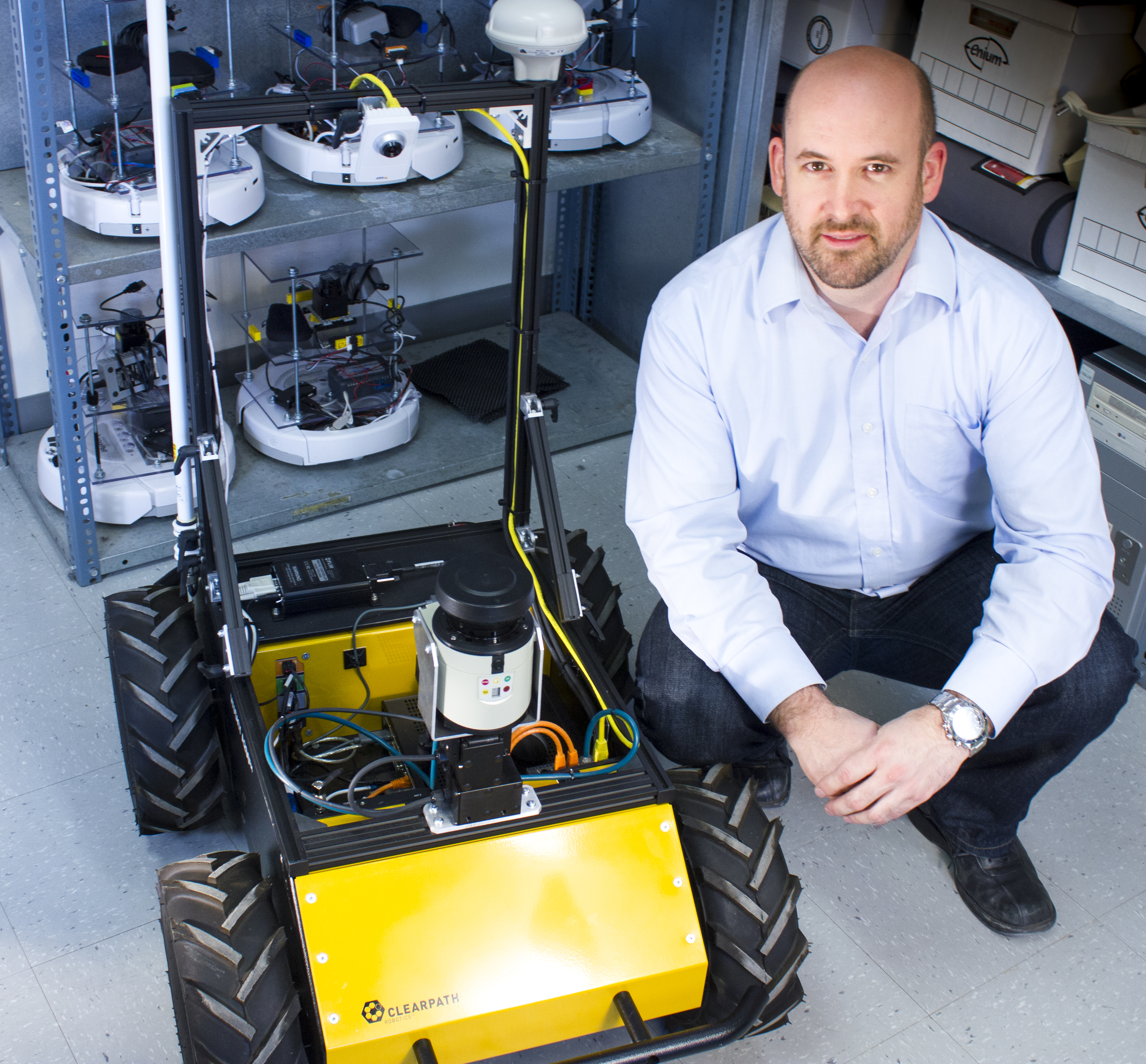
Philippe Giguère, eng. (Bac. : Eng. Phys. Laval U., MSc: CS Northeastern U., Ph.D.: CS McGill U.) is a full-professor in Computer Science and Software Engineering at Laval University since 2010. He cumulates fifteen years of experience in mobile robotics and artificial perception, with over six years of experience in the industry. He conducts research in mobile robotics (Norlab) and artificial intelligence (DAMAS lab). His main research theme is the increase of autonomy for cyber-physical systems, by leveraging machine learning and sensor fusion. His most recent projects are related to automatizing forestry operation, grasping, computer vision, 3D point cloud processing, mapping, localization, and finally tactile sensing.
Agricultural robots are being developed for many agricultural applications such as transplanting,cultivating, spraying, trimming and selective harvesting. In practice, current working agricultural robotics systems are limited despite intensive R&D and many feasible technical solutions that
have proven successful. State-of-the-art in developments will be presented with special focus
on two recent EU projects (
Sweet Pepper Harvesting Robot
; Clever Robots for Crops)
Various aspects of the project, from the scientific and technical challenges and solutions, to the
results of extensive field tests in a commercial greenhouse with a large variety of conditions will
be presented. Lessons learned and insights on how to successfully implement agricultural
robots in practice and improve performance will be discussed. I will conclude with future
challenges combined with R&D directions that must be tackled.
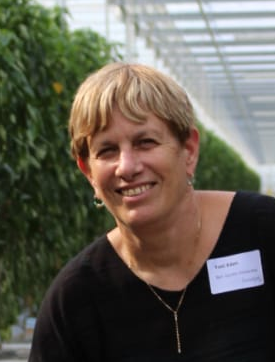
Yael Edan is a Full Professor in Industrial Engineering at Ben-Gurion University of the Negev (BGU) and the Director of the Agricultural, Biological and Cognitive Robotics Initiative. She has a B.Sc in Computer Engineering and a M.Sc in Agricultural Engineering both from Technion, Israel Institute of Technology and a Ph.D from Purdue University. For the last 25 years she has led research in robotics, sensors, simulation, and decision-making systems. Her current robotics focuses on human-robot cooperation – development of models, interface design and evaluation methods. Specific recent developments have been directed towards social assistive robotics and agricultural robots. In addition, she has made major contributions in the introduction and application of intelligent automation and robotic systems to the field of agriculture with several patents.
Prof. Edan has led many international projects (USA, Japan, Europe). At BGU she is an endowed-chair professor and has served in several management functions including Deputy Rector, Chair of the Dept. of Industrial Engineering and Management and of the Paul Ivanier Center for Robotics and Production Management. Prof. Edan is a member of the IEEE Robotics and Automation Society, the Israeli Robotics Association and she has been the Chair of the Flexible Automation and Robotics/Mechatronics and BioRobotics committees in the ASABE, Society for Engineering in Agricultural, Food and Biological Systems.
After briefly summarizing my 2015 IJRR paper, “Motion Primitives and 3D Path Planning for Fast Flight through a Forest,”I will present some recent methods that successfully integrate deep neural networks for robust and safe flight control, using the Neural Contraction Metric (NCM), optimal motion planning with nonlinear stochastic dynamics and chance constraints, and a new episodic framework for learning unknown residual dynamics under safety constraints.

Soon-Jo Chung is the Bren Professor of Aerospace in the Graduate Aerospace Laboratories of the California Institute of Technology (GALCIT). Prof. Chung is also a Research Scientist of the NASA Jet Propulsion Laboratory. Prof. Chung received the S.M. degree in Aeronautics and Astronautics and the Sc.D. degree in Estimation and Control with a minor in Optics from MIT in 2002 and 2007, respectively. He received the B.S. degree in Aerospace Engineering from KAIST in 1998 (school class rank 1/120). From 2009 to 2016, Prof. Chung was an associate professor and an assistant professor at the University of Illinois at Urbana-Champaign. Prof. Chung was a Member of the Guidance & Control Analysis Group in the Jet Propulsion Laboratory as a JPL Summer Faculty Research Fellow and Faculty Affiliate working on distributed small satellites during the summers of 2010-2014.
Professor Chung's research focuses on distributed spacecraft systems, space autonomous systems, and aerospace robotics, and in particular, on the theory and application of complex nonlinear dynamics, control, estimation, guidance, and navigation of autonomous space and air vehicles.
WPPMFR 2020






